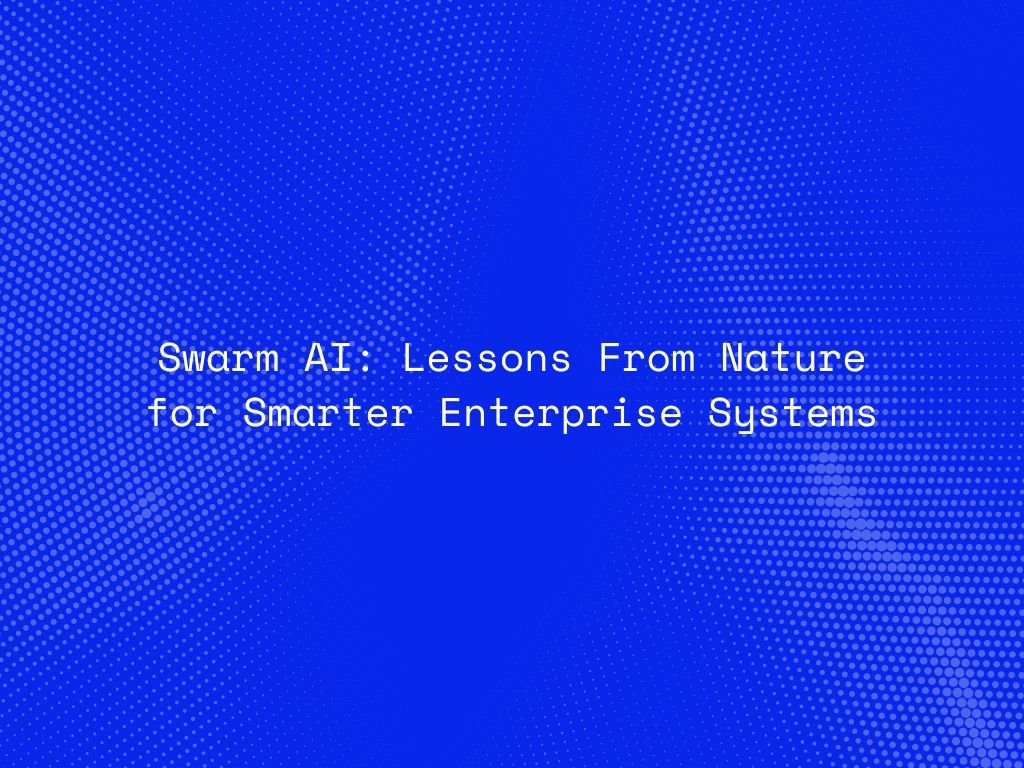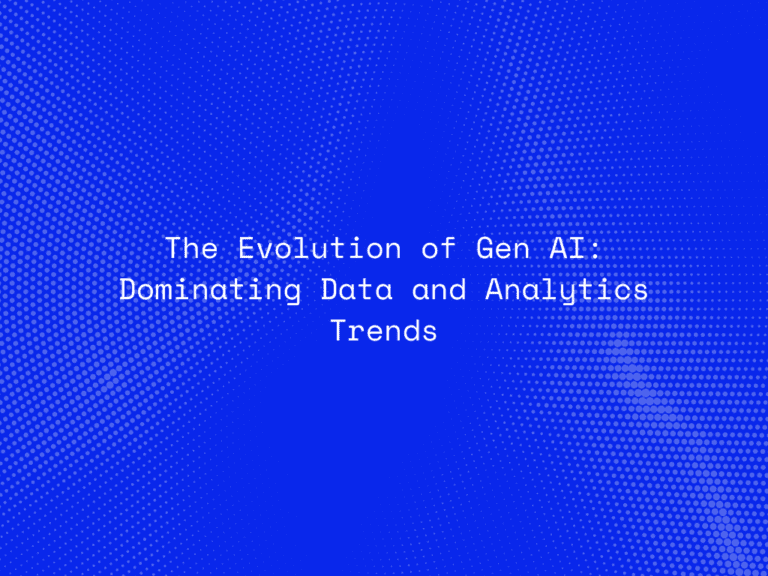Nature has long been an inspiration for technological innovation, and one of its most fascinating models is found in swarm intelligence—the collective behavior of decentralized, self-organizing systems such as ant colonies, bee hives, and flocks of birds. These systems operate without central control yet achieve remarkable coordination, efficiency, and adaptability.
Today, Swarm Artificial Intelligence (Swarm AI) applies these biological principles to modern enterprise systems, creating networks that can make faster, smarter, and more resilient decisions. From supply chain management and logistics to financial forecasting and cybersecurity, swarm-inspired AI is enabling organizations to tackle complexity with natural elegance.
Understanding Swarm Intelligence
Swarm intelligence refers to how individual agents—be they ants, bees, or fish—follow simple local rules and interactions, yet together create highly coordinated global behavior. No single agent has complete knowledge, but the group collectively solves complex problems such as finding food, building structures, or avoiding predators.
In AI, this concept translates into multi-agent systems, where multiple autonomous entities interact, share information, and collectively optimize outcomes. Each agent operates based on local data and adaptive algorithms, and together they produce intelligent, emergent behavior. This decentralized approach is the foundation of Swarm AI.
From Nature to Enterprise: The Core Principles
Enterprises today face challenges similar to those in nature—unpredictable environments, resource competition, and the need for adaptability. Swarm AI offers valuable lessons in how to address these issues:
-
Decentralization:
Just as ants collectively find optimal routes without a leader, Swarm AI enables distributed decision-making across enterprise systems. This reduces single points of failure and increases operational resilience. -
Adaptability:
Swarm behavior thrives in dynamic environments. In business, AI-driven systems that mimic this behavior can adjust in real time to supply chain disruptions, demand fluctuations, or cybersecurity threats. -
Collaboration and Self-Organization:
Individual agents in a swarm exchange information and act collectively toward a goal. Similarly, AI agents in enterprise networks collaborate to improve efficiency across departments—marketing, operations, and finance—without needing central coordination. -
Emergent Intelligence:
The intelligence of the system emerges from interactions, not pre-programmed instructions. This allows enterprise systems to continuously learn, evolve, and optimize based on ongoing feedback.
Applications of Swarm AI in Business Systems
1. Supply Chain Optimization:
Swarm AI can dynamically reroute logistics, balance inventory levels, and identify the most efficient delivery paths, similar to how ants find optimal foraging routes. Companies like UPS and Amazon already use AI models inspired by swarm dynamics to optimize routing and reduce delays.
2. Cybersecurity and Network Defense:
Swarm-based AI agents can collaboratively monitor enterprise networks, detect anomalies, and respond to cyber threats in real time. This decentralized defense mimics how bee colonies react collectively to external threats—fast, coordinated, and adaptive.
3. Financial Forecasting and Trading:
In financial systems, Swarm AI can analyze multiple data streams and make distributed decisions based on market movements. By aggregating agent-level predictions, firms achieve more stable and accurate forecasting models.
4. Smart Manufacturing:
Factories powered by Swarm AI use autonomous robots and machines that communicate and coordinate in real time, improving production efficiency and reducing downtime. Each robot acts independently yet contributes to the overall optimization of the assembly process.
Benefits for Modern Enterprises
-
Scalability: Decentralized systems can easily expand by adding more agents without overhauling the entire infrastructure.
-
Resilience: With no central dependency, the system can withstand component failures without halting operations.
-
Speed: Real-time decision-making becomes faster as localized agents handle tasks simultaneously.
-
Continuous Learning: Feedback loops allow systems to evolve, refine predictions, and adapt to new data streams automatically.
Challenges and Considerations
While Swarm AI offers promising opportunities, it also poses certain challenges:
-
Coordination Complexity: Managing interactions among numerous agents requires careful algorithmic design to prevent chaos or redundancy.
-
Data Integrity: Swarm AI depends on consistent data exchange; inaccurate or delayed information can degrade system performance.
-
Ethical and Transparency Issues: As emergent systems become more autonomous, ensuring accountability and interpretability remains critical for enterprise adoption.
Addressing these issues requires robust data governance, explainable AI frameworks, and continuous system auditing to maintain trust and control.
The Future of Swarm AI in Enterprises
The future of Swarm AI lies in its integration with other advanced technologies like edge computing, IoT, and blockchain. Together, they can create distributed ecosystems where intelligent agents communicate securely, learn collectively, and act autonomously.
Imagine fleets of delivery drones that coordinate routes in real time, industrial robots that self-organize production lines, or financial systems that adjust strategies based on emergent market behaviors—all powered by the same fundamental principles that guide nature’s most efficient systems.
As enterprises continue to digitize, the move toward Swarm AI-driven operations marks a significant shift from centralized control to distributed intelligence—one that promises greater adaptability, efficiency, and innovation.
Conclusion
Swarm AI demonstrates how nature’s intelligence can inspire next-generation enterprise systems. By embracing decentralized collaboration, continuous learning, and adaptive decision-making, organizations can transform complex operations into agile, resilient, and efficient networks.
Just as a colony of ants can find the best path without a leader, tomorrow’s enterprises will thrive on the collective intelligence of their AI systems—self-organizing, self-optimizing, and always evolving.




